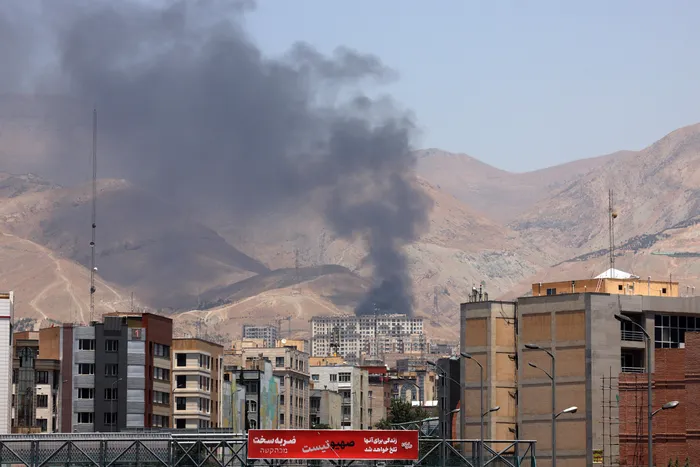
Shipping lines said that they are also concerned about the impact of escalating Middle East tensions between Israel and Iran.
Image: AFP
As geopolitical tensions continue to escalate between Israel and Iran, the shipping industry is watching closely, with major players voicing their concerns over potential disruptions.
Shipping giant Maersk on Tueday said that its immediate priority was ensuring the safety and well-being of its staff in impacted locations.
“Currently, all our colleagues are safe, and we have activated our business continuity procedures to minimise the impact on our business and customers. We are closely monitoring the situation and assessing the potential impact on our operations,” said Adhish Alawani, Maersk spokesperson.
“Currently, we are not experiencing any disruptions. We aim to keep our customers informed and help them with alternative solutions if needed.”
Disruption in the Middle East could have far-reaching economic consequences.
Malcolm Hartwell, director and master mariner at Norton Rose Fulbright, said that last week shipping lines would have been celebrating the increased cargo volumes likely to flow due to the US-China tariff accord.
Hartwell pointed to a positive change as China waives duties on imports from Africa, with the notable exception of eSwatini, the sole African nation recognising Taiwan.
“Those trade volumes will still increase, but the celebrations will be dampened by the oil price increase and volatility. Fuel accounts for up to 60% of the operating costs of large container ships, and accordingly, a spike in oil prices has a direct impact on shipowners and the prices they charge customers,” he said.
“In the short term, the bunker fuel brokers and suppliers will carry much of this increase as the large container lines that dominate world trade—being Maersk, MSC, CMA-CGM, and Cosco—will have long-term fuel supply agreements in place with their bunker suppliers.”
Hartwell added that these agreements typically have mechanisms in place to smooth out price fluctuations in the short term.
“However, if the conflict escalates and Iran takes further actions, then the increases will flow down to shipowners and shipping lines. Shipowners will have to pass the increases on to charterers and cargo interests, and those increases will ultimately trickle down to the consumers and manufacturers that rely on imports and exports,” he said.
“Marginal businesses will then fail, and the gains in trade volumes anticipated from the cooling off of US-led tariff tensions will be reversed.”
Hartwell said that the spike will undoubtedly be of major concern to everyone given that most nations rely on international trade to drive their economies.
“It is to be hoped that all those involved in the Middle East conflict take steps to ensure the conflict does not escalate and, in particular, that oil supply facilities and chokepoints like Hormuz are not threatened or disrupted. For now, the world will have to watch and wait to see whether Israel and/or Iran take further action.”
Waldo Krugell, economics professor at North-West University, said the impact was mainly through a higher oil price.
“It is not about oil from Iran itself (their oil exports face sanctions); it is about concerns about supply from the region. This has not been threatened, but there are worries about what will happen if there is an escalation in the region,” Krugell said.
“A higher oil price and slightly weaker rand-dollar exchange rate than last month could cause fuel prices to increase and, in the end, fuel inflation. Analysts are talking about a possible 50c per litre increase, but it is only the 17th, so a lot can happen before the next fuel price announcement.”
Dr Eliphas Ndou, an economist at Unisa, underscored the importance of understanding the causal relationship between fluctuating oil prices and consumer inflation.
“The oil price passthrough to inflation continues to attract interest from policymakers following the oil price spikes due to the Russia–Ukraine conflict that began in February 2022,” Ndou said.
“Taylor (Citation 2000) postulated that the inflation environment tended to affect the degree of the passthrough of cost shocks to inflation, such that the passthrough is much lower in a stable and low-inflation environment.”
BUSINESS REPORT